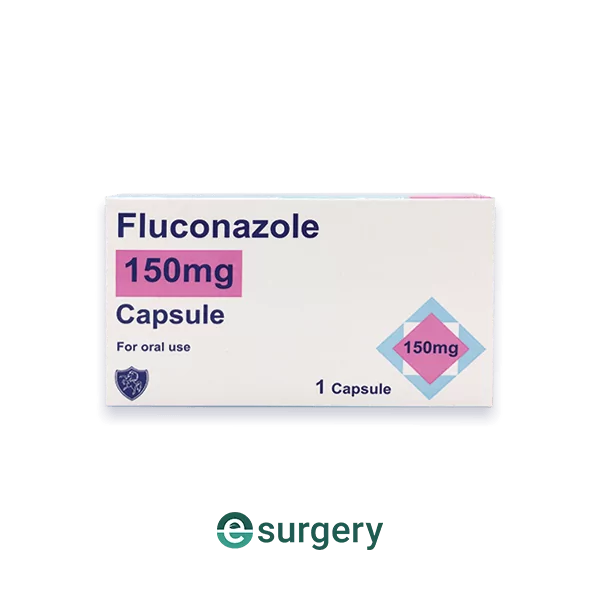
Thrush is very common!
If you’re suffering from thrush, you’re not alone. While there are medications available to treat this condition, there are also several natural home remedies for thrush that can provide relief. In this blog post, we will discuss thrush, its symptoms, five home remedies for thrush, medications, and ways to avoid thrush.
What is thrush?
Thrush is a common yeast infection that can affect both men and women. The medical name for this condition is candidiasis. The yeast that causes thrush is a type of fungus called Candida. This yeast is found naturally in the vagina, as well as in the mouth and digestive tract. Under normal circumstances, it doesn’t cause any problems. However, when the balance of bacteria in the body is disrupted, the yeast can overgrow and cause symptoms (1). This can happen for a number of reasons, including (2):
- Taking antibiotics
- Pregnancy
- Diabetes
- A weakened immune system
- Hormonal changes, such as those that occur during the menstrual cycle
- Skin irritation
What are the symptoms of thrush?
If you have thrush, you may experience one or more of the following thrush symptoms:
For Women: The most common symptom of thrush in women is itchiness in and around the vagina. Other symptoms may include:
- Itching and irritation in the vagina and vulva
- Burning sensation when urinating
- Redness and swelling of the vulva
- Thick, white, vaginal discharge that looks like cottage cheese
- Pain during sexual intercourse
For Men: The most common symptom of thrush in men is a burning sensation during urination. You may also experience:
- Burning and itching around the head of the penis
- Redness and swelling of the foreskin
- Thick, white discharge from the penis
- Pain during sexual intercourse
If you think you might have thrush, it’s important to see your doctor or another healthcare provider so they can diagnose and treat the infection.
Is thrush different from bacterial vaginosis?
Yes, thrush is not the same as bacterial vaginosis (BV). BV is caused by an overgrowth of bacteria in the vagina, while thrush is caused by an overgrowth of yeast. Both conditions can cause vaginal itching and discomfort, but they require different treatments. Think you may have BV? Find out the key BV symptoms here.

Is thrush different from UTI?
Thrush is a vaginal yeast infection that can cause burning, itching, and discharge. It’s different from a urinary tract infection (UTI), which is an infection of the bladder or urethra. While both conditions can cause discomfort, they’re treated differently. Think you might have UTI? Here are 5 ways to manage a UTI at home!
What are the home remedies for thrush?
In the meantime, there are some home remedies for thrush you can try to ease your symptoms:
1. Apple cider vinegar: Apple cider vinegar is a popular home remedy for a variety of health conditions, and thrush is no exception. The antifungal properties of apple cider vinegar help fight the infection while also restoring the pH balance of the vagina. Consuming one tablespoon two times daily or gargling with diluted apple cider vinegar can help in controlling the symptoms of thrush (3).
2. Yoghurt: Eating yoghurt with live cultures may help to reduce the symptoms of thrush. The probiotics in yoghurt can help to restore the balance of bacteria in your vagina and fight off the yeast infection (4).
3. Garlic: Garlic has natural antifungal properties that can help to fight off yeast infection. You can eat garlic cloves raw, or add them to food (5).
4. Coconut oil: Coconut oil is one of the popular home remedies for thrush due to its antifungal and antibacterial properties. For oral thrush, take 1-2 tablespoons and swish it in your mouth for 15 minutes and then spit it. Avoid consuming anything for the next 30 minutes. For vaginal application, apply it on a tampon and then use it. (6).
5. Salt water: Gargling with salt water can help to relieve the symptoms of thrush. Mix 1/2 teaspoon of salt in a glass of warm water and gargle for a few minutes. Spit the mixture out after gargling. Repeat this process two times a day for best results (4).
How to avoid thrush?
There are a few key ways you can avoid developing thrush so you won’t need home remedies for thrush, or re-infecting yourself if you’ve already got it.
1. Keep things clean
This one might seem obvious, but it’s worth repeating. Washing your hands regularly (and thoroughly) is crucial to preventing the spread of thrush. Always dry your hands well afterwards.
2. Change your clothing
If you’re prone to thrush, you might want to avoid wearing tight-fitting clothing (like yoga pants or leggings) that can trap moisture and heat. Instead, opt for loose-fitting, breathable fabrics. The same goes for underwear – choose cotton or other natural fabrics over synthetic ones.
3. Change your diet
Eating a healthy, balanced diet is important for overall health and can help prevent thrush. But there are a few specific things you can do to lower your risk.
Cutting back on sugar can help, as yeast loves to feast on it. This means avoiding sugary foods and drinks, as well as refined carbs like white bread and pasta. Instead, focus on eating plenty of fresh fruits and vegetables, lean protein, and whole grains. You should also avoid drinking alcohol or taking drugs that can weaken your immune system.
4. Practice good hygiene
Proper hygiene is essential for preventing thrush. This means cleaning your genitals regularly (with soap and water). Change your tampon or pad regularly during your period.
5. Keep your stress levels in check
Stress can take a toll on your entire body, including your oral health. When you’re stressed, your body produces more cortisol, which can weaken your immune system and make you more susceptible to infection (7).
6. Avoid using harsh mouthwashes
Mouthwashes that contain alcohol or other harsh chemicals can actually dry out your mouth, making it a prime breeding ground for yeast. Instead, opt for a milder, alcohol-free mouthwash or rinse with saltwater. Also, use a softer toothbrush (8).
Are there medications to treat thrush?
Yes, there are medications that can be used to treat thrush. One of the most common medications is fluconazole capsules. Fluconazole is an antifungal medication that is used to treat a variety of fungal infections, including thrush. Fluconazole works by killing the fungi that cause the infection and is an over the counter treatment.
Common side effects include nausea, vomiting, headache, rash, stomach pain, or diarrhoea. Before taking any medication, inform your GP first so that any cross-medications are avoided.
 |
Can I order these medications online?
Yes, you can order Fluconazole capsules for thrush treatment from e-Surgery, a trusted and registered online pharmacy, which ensures secure, discrete, and fast delivery of your package to your doorstep. Though you can buy the medication over the counter, ordering from reputable sources such as e-Surgery ensures safety and efficiency.
Sources
- Candidiasis | NCBI
- Thrush in men and women | NHS
- Does Apple Cider Vinegar for Candida Work? Plus, How to Use | Healthline
- Oral Thrush: 9 Home Remedies to Help Manage Your Symptoms | Healthline
- Garlic for Yeast Infection: Treatment & Side Effects | Healthline
- Can You Use Coconut Oil to Treat a Yeast Infection? | Healthline
- Stress as a cause of chronic recurrent vulvovaginal candidosis and the effectiveness of the conventional antimycotic therapy | NCBI
- How can you prevent oral thrush? – InformedHealth.org – NCBI Bookshelf | NCBI
Further Reading
- 11 Home Remedies for Vaginal Yeast Infection | Healthline
- Eight home remedies for a yeast infection | Medical News Today
- Home remedies for thrush: 9 natural remedies for thrush to try | Good to know








